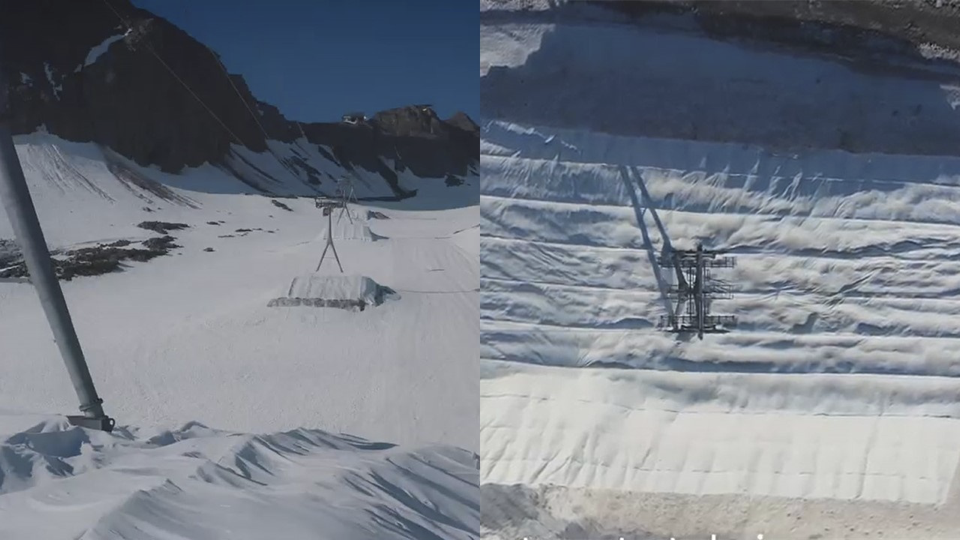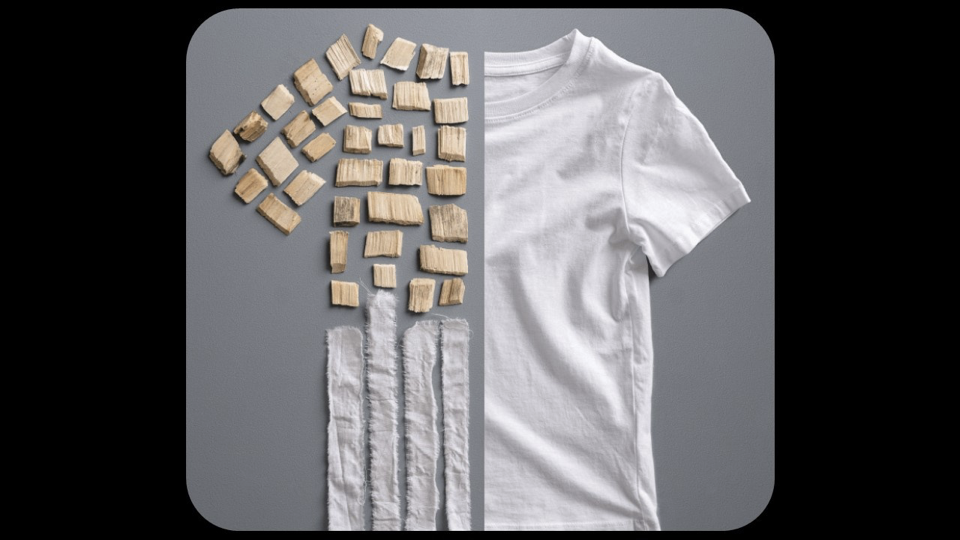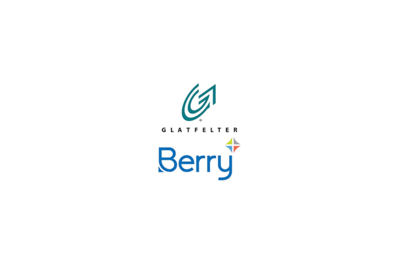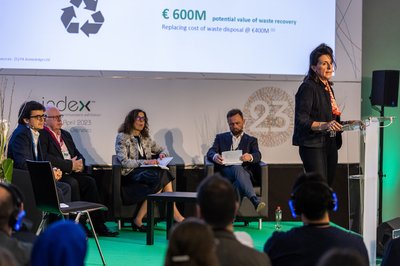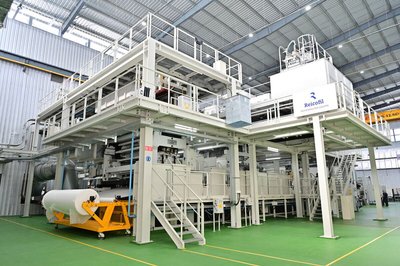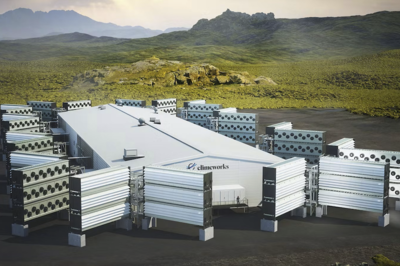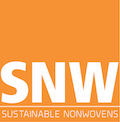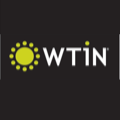
During 2023, cable car owners at ski sites across Austria have been carrying out field trials with nonwoven geotextiles based on Lenzing cellulosic fibres.
Geotextiles have been used on ski slopes for many years to protect glaciers from melting away too quickly.
“The problem is they are made from oil-based synthetic fibres that are persistent and not biodegradable and get washed down into the valleys”, explains Berndt Koell, Lenzing’s global business development and application innovation manager. “They can entangle and affect small organisms and animals and aggregate along the food chain.”
“Our suggestion is to use cellulosic geotextiles to resolve these issues, being biodegradable, wood-based and plastic free. They can also be fully recycled and we want to work together with the Alpine clubs and tourism, NGOs and authorities to make this solution to avoiding microplastics more widespread.”
In September at a special ceremony in Lausanne, Lenzing received the Swiss Bio Top award for wood and material innovations for its geotextiles development.
Lenzing Nonwovens Technology (LNT)
Lenzing now has its own integrated fibres and nonwovens pilot production plant in Austria following a €25 million investment.
Lenzing Nonwovens Technology (LNT), covered by around 40 patents, combines lyocell fibre and roll goods production in a single step and is creating 100% cellulose nonwovens without the use of binders and some unique material properties.
For applications in wipes, LNT nonwovens provide good convertibility, fast wicking, homogeneous lotion distribution in stacks, good cleaning properties and compaction, with less wet deformation during dispensing and wiping.
The carrier materials produced by LNT also have the capability to bind-in pulp solely by hydrogen bonding.
The company is currently seeding the market with small quantities of these materials to test acceptance and in 2024will integrate a wetlaid machine into the LNT line in Austria.
Expansion
The market for cellulosic fibres continues to grow at a rapid pace, with Lenzing at the forefront of the expansion.
By 2030, however, it has been estimated that the global demand for all fibres will have increased to an annual 140 million tons. Allowing for existing under-utilisation at established plants, this still calls for a further 24 million tons of additional capacity, with both synthetics and cellulosics meeting demand.
In the years to 2030, synthetic fibres – primarily polyester – will grow by 2.7% annually, and cellulosics (excluding cotton) by 5.6%, according to Lenzing projections.
“We are growing at twice the speed but in absolute terms, synthetics still represent 92% of all manmade fibres and cellulosics just 8%, based on 2022 production figures”, said Lenzing CEO Stefan Sielaff.
Recycling
The future need for recycling is naturally high on Lenzing’s agenda and in a partnership with Swedish pulp producer Södra, the company is pooling decades-long experience, knowledge and technology to develop the OnceMore process, in a project co-funded by the European Union.
This draws on Lenzing’s Refibra technology which enables a variety of complex, coloured textiles containing a mixture of cotton, polyester and other components, including elastane, to be processed and recycled.
Construction has now commenced at Södra’s Swedish plant in Mörrum to produce an annual 60,000 tons of pulp comprising 50% recycled material and 50% renewable pulp from sustainable forestry, which can be turned into new lyocell and viscose fibres.
Austrian companies and not-for-profit organisations including logistics and sorting partner ARA, the textile service provider Salesianer Miettex and recycler Caritas have further joined forces to collect used household and clothing textiles for reprocessing to the OnceMore pulp.
Investment
Lenzing has invested a huge amount in recent years in not only expanding capacity for its cellulosic fibres globally, but also in greening its production sites in the push towards becoming carbon neutral by 2050.
The company has, for example, just spent €100 million solely on upgrading its plant in Purwakarta, Indonesia to produce speciality lyocell and viscose meeting the standards of its production in Europe – without any increase in capacity at all. The plant is now manufacturing both Lenzing Ecovero branded fibres for textiles and Veocel branded fibres for nonwoven applications while significantly reducing emissions at the site.
Going a stage further, in September, the company obtained the EU Ecolabel for the Purwakarta site.
“We are working tirelessly to make the industries in which we operate even more sustainable and to drive the transformation of the textiles and nonwovens business models from linear to circular”, said Stefan Sielaff. “Our investments in Indonesia, as well as in other Lenzing sites around the world, put us in an even better position to meet the growing demand for speciality fibres with low environmental impact.”
